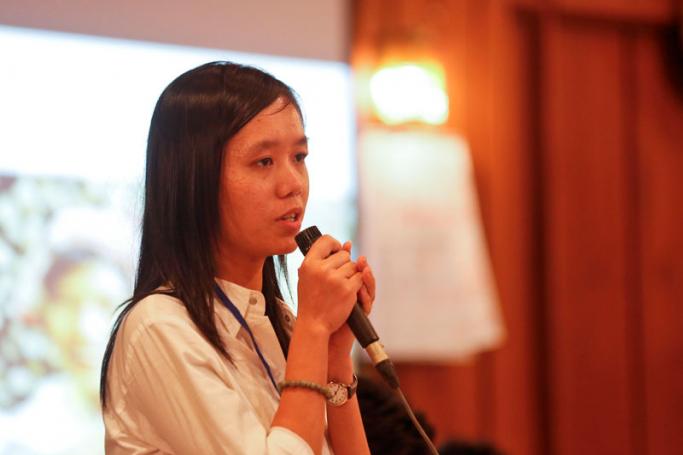People who speak out against leaders face increasing risk of punishment or prosecution, Amnesty International said on December 4 as it launched the world’s biggest human rights campaign.
During the annual Write for Rights campaign, from 4-17 December, hundreds of thousands of Amnesty International supporters and activists around the world will send letters, emails, SMS messages, faxes and tweets calling for the release of activists jailed for peaceful dissent, supporting victims of torture and pointing a spotlight on other human rights abuses.
“Our campaign promises exciting, uniting and effective activism bringing together people from all different walks of life,” said Salil Shetty, Secretary General of Amnesty International.
“When hundreds of thousands of people say they stand by a human rights defender, the impact is huge. It gives the human rights defender the strength to keep going. It also sends a message to their oppressors that they cannot keep their crimes secret and the world is watching for their next move. Every letter, email and petition signature that authorities receive is a chink in an armour that would otherwise be impenetrable, chipping away at the power of those authorities who commit human rights abuses."
2014 was a record-breaking year for the campaign, with hundreds of thousands of people in more than 200 countries and territories sending 3,245,565 messages offering support or calling for action on the cases of 12 individuals and communities experiencing human rights abuses. More than a million messages have been sent in support of jailed Saudi blogger Raif Badawi since the campaign raised his case.
Solidarity campaign has seen prisoners released, pardoned
The annual campaign has achieved major victories. On 28 May 2015, the Delta State Governor Emmanuel Uduaghan pardoned and released Nigerian torture survivor Moses Akatugba after receiving calls for clemency from 800,000 Amnesty International supporters. Moses was sentenced to death for armed robbery after stealing three mobile phones - a crime he says he did not commit - based on a “confession” obtained under torture. “I was arrested, tortured and imprisoned when I was just 16 years old. I was sentenced to death,” Moses said in a letter to Amnesty International supporters. “Without the thousands of letters sent in support of my case, I might never have been granted my freedom.”
The 2013 campaign led to the release of three prisoners of conscience: Cambodian housing rights activist Yorm Bopha, community leader from Myanmar Dr Tun Aung and Russian protester Vladimir Akimenkov. Authorities received hundreds of thousands of letters and petitions from Amnesty International supporters.
Freedom of expression under threat
The 2015 Write for Rights campaign illustrates the growing pressure on freedom of expression, calling for the release of several people jailed or facing trial as a price for peaceful dissent:
Myanmar: Phyoe Phyoe Aung, leader of one of Myanmar’s largest students unions, one of 54 students and protesters jailed after protests on 10 March 2015.
Uzbekistan: Muhammad Bekzhanov, the world’s longest-imprisoned journalist (together with Yusuf Ruzimuradov from the same paper, jailed at the same time in 1999).
Malaysia: Political cartoonist Zulkiflee Anwar Ulhaque or “Zunar”, who faces a long prison sentence under the Sedition Act for tweets criticizing the country’s judiciary.
Democratic Republic of Congo: Peaceful youth activists Yves Makwambala and Fred Bauma, arrested at a press conference and awaiting trial accused of forming a criminal gang and attempting to overthrow the government.
Saudi Arabia: Lawyer Waleed Abu al-Khair, currently serving a 15-year prison sentence followed by a 15-year travel ban and a fine for his peaceful activism. Before his imprisonment, he defended many victims of human rights violations in Saudi Arabia, including Raif Badawi, who was supported by last year’s campaign.
“We are seeing a growing crackdown on dissent in many places, with arrests and trials of the most outspoken designed by governments to send a chilling message that speaking out comes at a high price. Many governments are terrified of people power - and react by attempting to limit it,” said Salil Shetty.
“More than ever, we need to stand in solidarity with brave people who stand up for human rights, despite the risks. Human rights defenders may be the immediate victims of the crackdown, but we all pay the price if the result is a society where people are afraid to speak out.”
Last year, almost three-quarters of states arbitrarily restricted freedom of expression, according to Amnesty International’s 2014 Annual Report (119 countries out of 160 covered in the report), including crackdowns on press freedom such as newspapers being forcibly closed and journalists threatened and attacked.
You are viewing the old site.
Please update your bookmark to https://eng.mizzima.com.
Mizzima Weekly Magazine Issue...
14 December 2023
Spring Revolution Daily News f...
13 December 2023
New UK Burma sanctions welcome...
13 December 2023
Spring Revolution Daily News f...
12 December 2023
Spring Revolution Daily News f...
11 December 2023
Spring Revolution Daily News f...
08 December 2023
Spring Revolution Daily News f...
07 December 2023
Diaspora journalists increasin...
07 December 2023
Naungcho to be transformed into tourist destination












